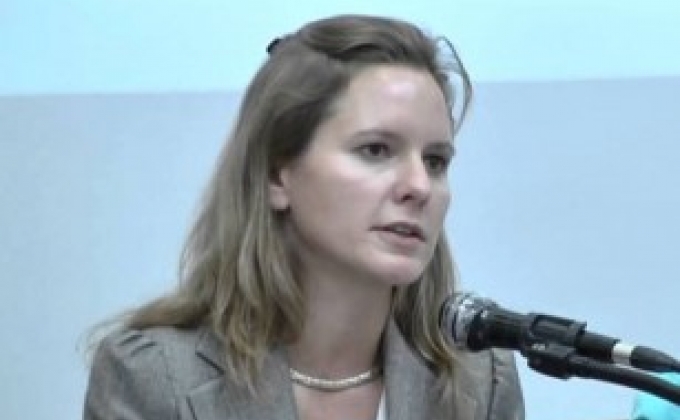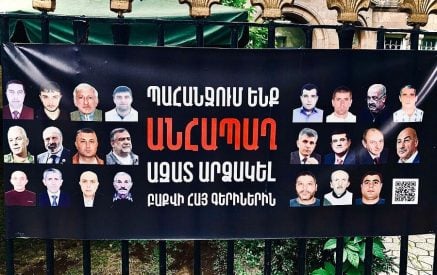Senior Analyst for South Caucasus/Turkey Project for the International Crisis Group (ICG), Nigar Göksel, believes that is less likely to initiate positive progress or a new type of relations in Armenia-Turkey relationships. To the question of Aravot during the online press conference in the framework of the “International press-center “Dialogue”: Diversification of the sources of international news for Armenian media”, supported by the OSCE Office in Yerevan, whether positive shifts are possible in the current Armenian-Turkish impasse relations, also in the light of the fact that a number of international experts claim that the impasse situation is created mainly by the fault of Turkey, as the Turkish parliament has not ratified the Armenian-Turkish Protocols, Nigar Göksel replied, “Politically, once it was convenient for the Ankara officially that the progress in the Armenian-Turkish relations on Nagorno-Karabakh conflict is registered along with the Armenian-Azerbaijani relations. But when Armenia insisted on the development of these two processes separately, Turkey and Azerbaijan began putting forward a variety of preconditions. Azerbaijan, for example, announced that the settlement of the Armenian-Turkish relations hampers the talks on Nagorno-Karabakh.”
The Turkish analyst noted that the Euro-Atlantic Capitals assure that the settlement of the Armenian-Turkish relations is more viable, therefore, it should be the first step on solving the impasse situation in the region. However, at the same time, he noted, “Nevertheless, the pressure on ratification of the protocols has been reduced in this period, other, in particular, the conflicts in Syria and Ukraine are in the core attention. So, now, the sentiment of foreign players on the normalization of the Armenian-Turkish and Armenian-Azerbaijani relations is quite weak.”
In this context, Nigar Göksel reminded that although the Armenian-Turkish protocols were recalled from the parliament by the official decree of Serge Sargsyan, Armenia’s signature continues to stay underneath these protocols. The analyst believes it is less likely that Turkey would display an initiative of having ambitions of a new type of relations with Armenia.
To the question of what developments should be expected in the Armenian-Turkish relations and in the peace process of the Nagorno-Karabakh conflict, especially in the context of the recent improvements in the Russian-Turkish relations, the analyst replied, “Generally, there are various approaches on this about why Moscow has officially appeared in the Armenian-Turkish relations. To be more cynical, we can announce that Russia has entered this process knowing well that if the Armenian-Turkish relations are improved, it will have a negative impact on Baku-Ankara relations, which may create an additional obstacle for Russia in terms of the impact on Azerbaijan. And in Ankara, Moscow is viewed as a decisive role player in the Karabakh conflict settlement. And Ankara is closely cooperating with Moscow on various schemes with Moscow, which Moscow is discussing with Yerevan and Baku thru its diplomatic channels.”
Read also
According to the Turkish analyst, the settlement of the conflict by acceptable options is attributed to the parties in conflict and if these measures are not applied, then Armenia and Azerbaijan will decide whether they take on their own destinies into their hands or not. Back to the ECHR decision on Perinçek, the Turkish expert said, “As long as this decision is not perceived as a response to the question whether there was a genocide in 1915 or not, it cannot have a particular impact on the history of the Armenian-Turkish relations.”
Tatev HARUTYUNYAN





















































